Searching for a new role is one of the top 3 most stressful periods of your life (along with moving and getting married). It isn’t something you do regularly, so it’s natural that you’re not an expert on resume writing, interviewing, choosing the right recruiters to work with, or negotiating salary.
Interviewing is the hardest part of the job search process. It’s kind of like dating and when you put a lot of pressure on yourself, some feel it can be terrifying. And just like dating, if you’ve been burned often enough, you may find yourself a little jaded and engaging in introductory behavior that knocks you out of the process early on.
Today I’m sharing 2 dos and 2 don’ts to make you feel more empowered for interviews, whether you’re virtual or in person. I’ll end with a proven preparation technique and a few interview basics that sometimes bear repeating. Let’s start with the dos!
Prepare, Prepare, Prepare!
- Research the company
- Don’t just look at their website – Google them and read any recent news to learn what you can about what’s happening in their world
- Look at their other open roles, history, etc. and take notes on anything that resonates with you
- Take what you read on Glassdoor with many grains of salt. Bitter employees are far more vocal than happy employees. And even really positive reviews can be false. It is widely documented that some employers actually bribe people to post positive feedback with gift cards because they had such negative reviews (I know, how gross is that?)
- Research the interviewer’s LinkedIn profile
- Which contacts do you have in common?
- Prepare questions about their career progression, their wish list for their team and this role, what attracted them to this company
- Research the company’s competition and clients
- Think about innovation opportunities
- Think about efficiency opportunities
- Prepare questions about challenges and growth plans
Know Your Realistic Worth
- You can find a lot of salary data online, but make sure you’re looking at data relevant to your geographical area (even if you’re fully remote)
- It’s natural to want the high end of every range, but recognize that pay equity doesn’t mean each position holder gets the same dollar amount. All sorts of things go into determining where an offer will come in within that range (education, years of experience, industry knowledge, etc.)
- If you’re asked what your salary expectations are, keep your answer short. I cannot stress that enough. The more information you share off the bat, the more likely you are to shortchange yourself. That said, arm yourself with information so that if they ask clarifying questions you can back up your initial answer with facts
- Acknowledge any posted range they have shared and if you’re outside of their range, why it still makes sense to consider a comprehensive offer (bonus, flexibility, equity, etc.)
- Emphasize your other motivators so that they can match you on areas where they will meet your needs (i.e. work/life harmony, reducing your commute, career progression, expanding your skills/knowledge, better work culture, etc.)
- Know that you don’t need to share what your most recent salary was and that it is illegal in many states for them to ask you for that information
- Be prepared to share what you’ve learned about market value for your role relative to the size of the company, industry, location, and the years of experience you bring to the table
Now for the DON’Ts
Don’t try to hijack the interview: The interviewer is trying to accomplish several things within a short amount of time and you need to allow them to do that in their own way and at their pace. There will always be a time for you to ask questions and for them to share information about the company and role (provided you don’t run off on tangents that compromise that allotted time).
- For instance, I always set an agenda with the person I’m interviewing so that it’s clear what I’m hoping to accomplish and in what order. Probably the biggest turnoff to me is when someone completely ignores that and then tries to redirect the conversation. It will be hard for you to recover from that damage
- An example would be if the interviewer asks you to start at the beginning of your career, but you say, “I’d like to start with my most recent position instead,” or “why don’t I save us some time and just summarize things for you?” It can come across as disrespectful and indicate that you have something to hide
- Another example is suggesting that the interviewer share all of the details (role/salary/perks) first before they have had an opportunity to assess YOU – just don’t do that. Remember that they are interviewing YOU for the job and absolutely want for you to be the right fit. Don’t make the mistake of filtering yourself out by setting off negative vibes right from the start
Don’t take your interviewer on a journey: I have so many analogies for this that it’s hard to choose, but I’m going to give you my top 2!
- Analogy #1: You got to Oz – bravo! The only things you should focus on from the start are why you needed to get there, how you planned to get there and what the results were. Example: I needed to get to Oz to get back to Kansas. The yellow brick road was my path to the answer. I gathered all of the tools I needed and not only found my way back home, but I also delivered a brain, heart, and courage along the way while thwarting a nefarious risk.
- Now at this point, you stop and ask if they have any questions on the problem, solution, or results and make sure you are prepared to expand upon them
Analogy#2: Where’s the Beef?! I know I’m dating myself here, but most people are familiar with the little old lady in the 1980’s Wendy’s commercials who demanded her due portion of meat (and rightfully so). The “meat” is the “what will this mean for me and my company” part of your answers. The bread, lettuce, and condiments are all of the details you want to fill in without even knowing if they matter. Remember the basics: Problem, Solution, Results – that is your BEEF. Once you deliver that, then you ask where any clarity is needed and fill it in with the other “yums” as needed
Preparation Tip
Think about your superpowers and detail out why they matter well in advance of your interviews. Note: the cool thing here is you really only need to do this once and it will carry you through pretty much every interview scenario!
- Approach this in a couple of different ways
- For Marketing/Sales people, I usually reference the Feature/Benefit approach: What do you bring to the table and why do they care?
- Another approach is to think about your competencies and how they have influenced your accomplishments with 4 components: Competency, Problem, Solution, Results
- What does this mean for interviews?
- Strengths/Weaknesses questions: Every strength can be used as weakness and vice versa. What they are really getting at is how will that strength benefit them, or what resources will you require to support you and ensure your success
- Situational interview questions: These are the “give me an example of a time when…” questions. If you have done your preparation, you’ll have everything you need from this exercise to navigate them handily
Remember These Basics
- Whether you interview with an internal or external recruiter, this is your only opportunity to make a first impression. If it’s with an outside recruiter, NEVER EVER say anything to the effect of, “I would never say this in a real interview.” Rest assured, you ARE in a REAL interview. If I expect my client to pay me to fully vet you, I’m analyzing every detail of our conversation
- Don’t take your video interview from a phone – make sure you are in a place with a strong internet connection. As an outside recruiter, this is absolutely a test to make sure you will be able to connect with my client on virtual interviews. Worst case, let the recruiter know in advance that you will need to take the call from your car or on a phone and what your plan is to correct the situation for next steps
- Be on camera in appropriate interview attire and with a professional background. Personally, I LOVE live backgrounds as they open up the opportunity for “get to know you” conversations and omit the possibility of “floating head” syndrome synonymous with picture backgrounds. However, if your workspace isn’t clean and attractive or if you run the risk of distractions like flying/chirping birds, cats walking across your keyboard, screaming children, etc., use a virtual background
- Be on time, which means at least 5 minutes early
At Elevation Talent Group, our top priority is to provide best in class candidate experiences; our clients’ experience is elevated as a result. We understand that job changes are one of three most stressful life events you will experience and we’re committed to doing everything we can to help you navigate the process.
Next month we’ll chat about impactful networking practices, which can be the best inroad to your next role. I would LOVE ideas for future blogs regarding the job search or talent search experience as well! Please feel free to email me at heidi@elevationtalentgroup.com or message me directly on LinkedIn https://www.linkedin.com/in/lancasterheidi/




